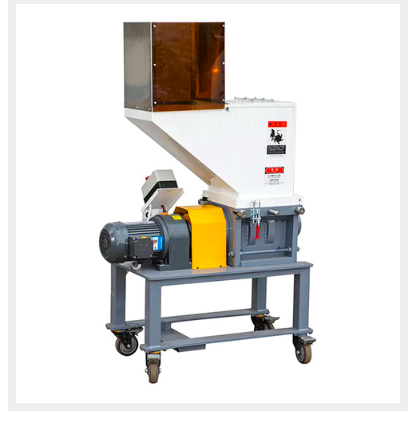Summary:In today's environmentally conscious world, minimizing energy consumption is a critical goal for recycling facilities, especially when it comes to pro
In today's environmentally conscious world, minimizing energy consumption is a critical goal for recycling facilities, especially when it comes to processing and recycling plastic waste. One effective method to achieve this is by utilizing
slow speed granulators.
Slow speed granulators are machines designed to break down plastic materials into smaller, more manageable pieces. Unlike their high-speed counterparts, slow speed granulators operate at a reduced rotational speed. This slower pace not only ensures safer operations but also contributes to significant energy savings.
The reduced speed of slow speed granulators reduces friction, leading to lower energy requirements during the grinding and cutting process. As a result, these granulators require less power to operate, translating to reduced energy consumption and lower utility costs for recycling facilities.
Furthermore, slow speed granulators are engineered with advanced technology that optimizes productivity while minimizing energy usage. They incorporate sophisticated control systems, such as variable frequency drives, which allow operators to adjust the machine's speed and power consumption according to the specific recycling requirements. This feature ensures that only the necessary energy is expended, further contributing to energy efficiency in recycling operations.
Another advantage of slow speed granulators is their ability to process a wide range of materials. Whether it is rigid plastics, thick plastic sheets, or bulky plastic products, these granulators can effectively handle different types of plastic waste with minimal energy consumption. This versatility makes them an ideal choice for recycling facilities that deal with various plastic materials on a regular basis.
In addition to energy savings, slow speed granulators offer other benefits to recycling facilities. They produce less noise and generate lower levels of dust compared to high-speed granulators, creating a safer and more comfortable working environment for operators. Moreover, the slower cutting speed of these granulators results in reduced heat generation during the grinding process, preserving the quality of the recycled plastic.
To achieve sustainable and efficient recycling practices, it is crucial for recycling facilities to prioritize energy conservation. Implementing slow speed granulators can play a significant role in minimizing energy consumption, reducing operational costs, and promoting a greener and more sustainable recycling industry. By investing in these energy-saving machines, recycling facilities can make substantial strides towards a more environmentally conscious future.














